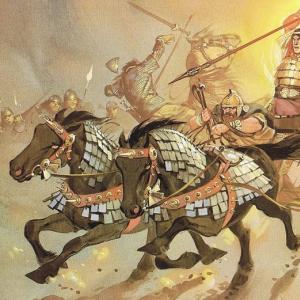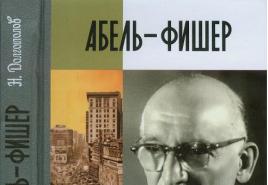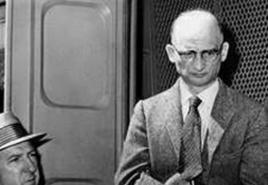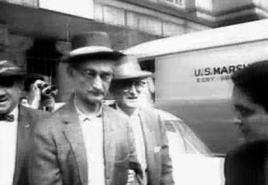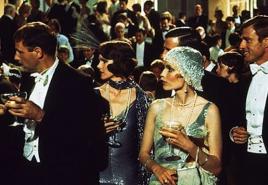12 year old son of the Tolya Yakushin regiment. A childhood scorched by war
These little soldiers of victory fought alongside the adults
The tradition of the "sons of the regiment" has existed in the Russian army since ancient times. Back in the 18th century in Russia, every military unit had at least one young drummer, and every ship had a minor midshipman. It is known that during the First World War, some Russian units also had their pupils. So, in the funds of the Novosibirsk Regional Museum of Local Lore there is a photograph of the 14-year-old son of the regiment, knight of the St. George Cross, dated 1915. The institute of "sons of the regiment" received a new round of development with the beginning of the Great Patriotic War.
In the regular units of the Red Army, replenishment in the ranks of young soldiers appeared in three ways. First, soldiers of military units picked up children left without parental care during the fighting. It could be either orphans or simply lost children.
Secondly, in Soviet units, there were often cases when parents in command positions, one or both, while serving in the unit, brought children to the front line, not without reason believing that it would be safer for the child than in the rear.
Thirdly, the replenishment also took place at the expense of children who fled from the rear to the front and successfully reached the front line. In the navy, the same children were called cabin boys.

The regiment's son Volodya Tarnovsky signs an autograph on the Reichstag column

Jung of the cruiser Krasny Kavkaz, awarded the Order of the Red Star. Sevastopol, 1944
According to the Central Archives of the Ministry of Defense of the Russian Federation, during the Great Patriotic War there were 3,500 young front-line soldiers under the age of sixteen. This number did not include young heroes of the underground and partisan detachments. Obviously, the figure is underestimated, since commanders often did not advertise the presence of a child in their unit.


6-year-old Tolya Voronov, who has completed a combat path with one of the guards divisions, meets his new comrades in the orphanage # 9. Moscow region. May 1945
The children remained in the regular unit with the permission of the unit commander, often secretly from the higher command. The young soldier could remain in the unit with the permission of the commanding staff, who included him in the list of the unit and put him on allowance. In this case, the child was given uniforms. Personal weapons could also be issued.
Most of the sons of the regiment simply performed various economic functions in the unit. However, quite a few of them took a direct part in the hostilities: young scouts, infantrymen, tankmen, cabin crews and even a 14-year-old pilot Arkady Kamanin, nicknamed Letunok.

14-year-old pilot Arkady Kamanin
Many young soldiers were awarded orders and medals. The youngest son of the regiment, who was awarded a battle award, was probably six-year-old Sergei Aleshkov, who saved the commander at Stalingrad, called for help under fire and took part in the digging of a piled-up dugout with the regiment commander and several officers. For this he was awarded the Medal for Military Merit.

15-year-old scout Vova Egorov with soldiers of his unit. Active army. April 1942
But this photo is, perhaps, the most "promoted". It appeared at the exhibition of the front-line photojournalist Anatoly Egorov. Among others, it was remembered, perhaps thanks to the surname of the "protagonist" - Zhayvoronok, Vitya Zhayvoronok ...
And recently this picture has appeared on the Internet. The author himself signed it as follows: “The commander of the rifle battalion, Major V. Romanenko, tells the Yugoslav partisans and residents of the village of Starchevo in the Belgrade region about the military affairs of the young intelligence officer, corporal Viti Zhaivoronka. 2nd Ukrainian Front, October 1944 ":

Then other versions of this photograph appeared. People wanted to touch the little winner. Maybe for luck. And the photos captured those moments. But who is Viktor Zhaivoronok? Where is he from? How was the fate of this courageous guy? Unfortunately, there is no exact answer to these questions ... It is only known that he supposedly came from near Nikolaev, fought in a partisan detachment, and in 1943 went to the front with one of the military units. As you can see, he reached Yugoslavia, was awarded the Order of the Red Star ...
We have not yet been able to find out anything about the battalion commander V. Romanenko, who is probably also from Ukraine. We can only hope that, perhaps, one of the readers knows something about these people. And, perhaps, he will. Or tell about this little hero.

People want to touch the little winner. Young intelligence officer Viktor Zhaivoronok in the liberated Serbian village of Starchevo. October 1944. Back in 1941, near the city of Nikolaev, Vitya went to a partisan detachment, and in 1943 he joined one of the Red Army units that stormed Dnepropetrovsk. He was awarded the Order of the Red Star for his participation in battles against the Nazis on Yugoslav soil

And the peers of the little soldiers simply rejoiced at the victory they had won ...
Based on Internet materials prepared by Konstantin Khitsenko
Seryozha Aleshkov was 6 years old when the Germans executed his mother and older brother for contacting the partisans. It happened in the Kaluga region.
Seryozha was saved by a neighbor. She threw the child out of the window of the hut and shouted to him to run as best he could. The boy rushed into the forest. It was in the fall of 1942. It is difficult to say how long the child wandered, hungry, exhausted, frozen in the Kaluga forests. He was stumbled by scouts of the 142nd Guards Rifle Regiment, commanded by Major Vorobiev. They carried the boy in their arms across the front line. And they left it in the regiment.
The most difficult thing was to find clothes for the little soldier: where can you find boots of size thirty? However, over time, both shoes and uniforms were found - everything as it should be. The young unmarried Major Mikhail Vorobyov became the second father for Seryozha. By the way, he later officially adopted the boy.
“But you don’t have a mother, Seryozhenka,” the major said somehow sadly, stroking the boy's short-cropped hair.
- No, it will be so, - he answered. - I like nurse Aunt Nina, she is kind and beautiful.
So, with the light hand of a child, the major found his happiness and lived with Nina Andreevna Bedova, the foreman of the medical service, all his life.
Seryozha helped his older comrades as best he could: he carried mail and cartridges to the fighters, sang songs in between battles. Seryozhenka turned out to have a wonderful character - cheerful, calm, he never whined and did not complain about trifles. And for the soldiers, this boy became a reminder of a peaceful life, each of them had someone at home who loved and waited for them. Everyone tried to fondle the child. But Seryozha gave his heart to Vorobyov once and for all.
Seryozha received the Medal "For Military Merit" for saving the life of his named father. Once, during a fascist raid, a bomb tore apart the regiment commander's dugout. No one, except the boy, saw that Major Vorobyov was under the blockage of logs.
Swallowing tears, the boy tried to move the logs to the side, but only tore his hands in blood. Despite the continuing explosions, Seryozha ran for help. He led the soldiers to the heaped dugout, and they pulled out their commander. And Private Seryozha of the guard stood nearby and sobbed loudly, smearing dirt on his face, like the most ordinary little boy he was, in fact.
The commander of the 8th Guards Army, General Chuikov, having learned about the young hero, awarded Seryozha with a combat weapon - a captured Walther pistol. In the battle at Stalingrad, Seryozha was wounded in the leg by a shrapnel, he was hospitalized, and after treatment he immediately returned to his home unit. But Mikhail Danilovich Vorobyov decided not to risk it anymore, adopted the boy and sent him to study at the Tula Suvorov School. It is known that Sergei Aleshkov graduated from the Suvorov School and the Kharkov Law Institute. For many years he worked as a lawyer in Chelyabinsk, closer to his family - Mikhail and Nina Vorobyov. In recent years, he worked as a prosecutor. He died early, in 1990. Affected by the years of the war.
The story of the son of the regiment, Aleshkov, seems like a legend, if not for an old black-and-white photograph, with which a smiling chubby boy with a garrison cap dashingly pulled down on one ear looks at us trustingly. Guard Private Seryozhenka. A child who fell into the millstones of war, survived many troubles and became a real person. And for this, as you know, you need not only strength of character, but also a kind heart.
April 1943. Rewarding. On the right is the regiment commander Vorobyov, in the center is the guard private Seryozha Alyoshkov (from the front newspaper)
"Son of the Regiment" is a term that originated in the second half of the 18th century. But it became really widespread during the Great Patriotic War, when thousands of children found shelter in the units of the Red Army. Children between the ages of six and fifteen, who are still quite children by modern standards, defended their homeland along with adults. How and why did they end up in combat units? And why did you choose this difficult path?
According to official data, there were about three and a half thousand so-called "children of the regiment" in the ranks of the Red Army. The figures are most likely underestimated: many commanders of the detachments hid the guys in order to protect them and themselves from unnecessary inquiries and formalities. They became "sons" and "daughters" in different ways. But, in general, three main paths can be distinguished, says the assistant professor of the Faculty of History of the Leningrad State University named after A.S. Pushkin Anatoly Nikiforov:
“Firstly, in the Red Army, most of the children ended up, having lost their loved ones and relatives, in other words, those who turned out to be orphans. Rightly believing that in the rear they can be left without proper parental care. And the third way is children who ran away from their families, underage volunteers who somehow managed to get to the front line and find themselves in the army. "
Finding themselves among the soldiers of the Red Army, the guys tried to keep up with their older comrades and be on a par with them. However, the commanders, taking responsibility for the child, tried to protect him from the horrors of the war as long as possible, says Anatoly Nikiforov:
“Whenever possible, they tried not to involve children in hostilities that threatened their lives. Most served as orderlies, clerks, girls as nurses. And only 10-15% of this number were young soldiers, who, for various reasons, themselves, of course , participated in battles as part of tank crews. If we talk about young fighters in the navy, there were more of them. Of course, it is difficult to become a special part of the crew on a ship, everyone takes part in hostilities there. "
War has a childish faceMillions of children and adolescents went through the war - they were in the territories of the USSR occupied by the enemy, worked in factories in the Soviet rear, fled to the front to beat the Nazis. They grew up in weeks and months, forever deprived of childhood and youth.Despite the fact that there were more chances to fight together with Soviet soldiers on the ship, the young volunteers performed their most heroic deeds on land and in the sky, says the director of the Museum of Air Defense Forces in the village of Zarya, Balashikha District, Moscow Region, military historian Yuri Knutov:
“Among the children there were scouts, those who served in the infantry, and tankers. There was even one pilot - Arkady Kamanin, who made a large number of combat missions (the youngest pilot of the Second World War, made his first flight at the age of 14, nicknamed“ The Flyer ” - Ed.). The girls served as nurses. Among them, the most famous is the future actress, People's Artist of the Soviet Union Elina Bystritskaya. In general, many of these "children of the regiment" later became Heroes of the Soviet Union, famous artists, scientists, generals. there is, in fact, a school that helped to form a new generation of patriots of their homeland. "
Many of the "sons of the regiment" subsequently chose a military career, became honored military leaders and generals. Fulfilled your childhood dream.
More than one generation of schoolchildren read Valentin Kataev's story "The Son of the Regiment". We will introduce you to a veteran, in whose fate the story of a literary hero was largely repeated
On June 22, war veteran Anatoly Vasilyevich Prilepko, following a long-standing tradition, goes to Zvezdochka, a memorial complex in the Kirovsky district of Novosibirsk, to take part in a rally dedicated to the mournful date - the beginning of the Great Patriotic War.
Like Vanya Solntsev
And I managed to talk to Prilepko after the Victory Day celebrations. Anatoly Vasilievich is a river veteran. He was well known in the West Siberian River Shipping Company, and many still remember him. He came to the river in 1967, after graduating from NIIVT. And he immediately established himself as a responsible and qualified specialist. He was distinguished from others by his constant desire to get to the heart of the issue and do everything with his own hands. He has always been at the forefront of scientific and technological progress in the navy, was engaged in the introduction of new technology. He had to solve complex technical problems and train others. But not all colleagues knew about his difficult biography.
From the first days of the Great Patriotic War, thousands of teenagers, along with adults, fought in the active army. After the release of Valentin Kataev's story "The Son of the Regiment" about a pupil of the Red Army, this name became a household name. So, Anatoly Vasilyevich, like Vanya Solntsev, is the hero of Kataev's book, also the son of the regiment, a participant in the Great Patriotic War.
His story was first told by his colleague, a veteran river operator Yuri Goleshchikhin on the pages of a newspaper in Novosibirsk. I supplemented it with episodes from military life and the post-war period.
Escape to the front
Anatoly was born in Kursk in the family of a hereditary Cossack, career officer Vasily Nikitovich Prilepko. As the front approached Kursk, the boy and his mother Nina Ivanovna were evacuated to Siberia, to the Zima station. Father, Captain Prilepko, fought against the Nazis from the first day of the war and died in 1943.
Who among the boys in those years did not dream of getting to the front line in order to perform a heroic feat! And Tolya still wanted to find his father. In the fall of 1943, when he was nine years old, he fled to the front, boarding one of the passing trains. At the Novosibirsk station, he was sheltered in one of the military echelons heading west. They fed me, picked up the boots, the regimental craftsman sewed a uniform according to the height of the soldier's uniform. So Tolya became the son of the regiment, a graduate of the 192nd Infantry Division, which, as part of the 39th Army of the Belorussian Front, traveled a glorious battle path from Yelnya through Belarus, Poland, Lithuania to Konigsberg.
Get a grenade, fascist!
The newly-made son of the regiment had to take part in battles more than once. And without the permission of adults!
Here is one episode. After the battles in Lithuania, the 113th (Tilsit) corps thinned greatly - by three quarters. During one of the battles, his platoon barely held the skyscraper. Two squads of the heroic platoon were destroyed. We were running out of ammunition and food. Tolya was not allowed to defend the heights. Then he took a duffel bag, threw in lemon, cartridges and crackers and, as they say, using the folds of the terrain, without permission, made his way to his own. They were very happy about the reserves. But his guardian ordered him to sit in the trench.
The restless son of the regiment nevertheless got out of the trench when he heard the steps of the fascists, and threw two grenades. The enemies did not rock the boat anymore.
- Were you scolded for a risky initiative?
- They were silent. This silence was dear to us! So, they were glad that they had brought the cartridges and provisions. And that helped.
Two millimeters to death
After the surrender of Nazi Germany, the 39th Army was transferred to the Far Eastern Front. Preparations were underway for hostilities with militarist Japan. And before that, by order of the commander of the 39th Army, it was decided to send all the teenagers to the Union. But Tolya escaped, leaving the camp of the students without permission, and on August 7, 1945, he caught up with his 39th Army. He continued his service in the 61st Panzer Division, no longer his own.
Here Anatoly ended up in the 61st motorized rifle regiment of Lieutenant Colonel Akilov, which was one of the army's vanguard detachments. Together with the regiment, he passed through the Big Khingan mountain range, through the whole of Manchuria, and reached the Pacific port of Yingkou.
He drank in full all that terrible that fell to the lot of the soldiers. Even adults sometimes could not survive what the war presented, and he was a teenager. He saw and lived through the death of his older friends - a soldier, to whom he became attached with all the strength of his boyish soul, and bombing, and shelling, and the whistle of bullets, and exhausting campaigns, and nights without sleep, and battles.
Anatoly was an executive, inquisitive, agile and persistent guy. He was very fond of technology, drove a motorcycle, a car, shot well, played the snare drum in the regimental orchestra.
In one of the battles with the Japanese invaders - on the outskirts of the city of Vanemyao in Manchuria - he was wounded by a mine fragment in the head. The surgeon from the medical battalion, making a dressing, said then: “You were born in a shirt. Another two millimeters - and to the next world! "
- And I thought that was not the case. The bullet did not take me, because I was small, all by! - Anatoly Vasilievich smiles.
For his diligence, willingness to help everyone and do any job, for his sociable character, the soldiers loved him. As his son - the son of the regiment.
Militaristic Japan was defeated, the division was redeployed to Mongolia. Anatoly served in the 61st regiment until 1949. Then, by order of the regiment commander, the teenager was sent to the Suvorov Military School, but the circumstances were such that he did not have to study, he returned to the Zima station, to his mother.
- What did your mother say about the flight?
- You need to imagine that time. She was glad to be back. I immediately went to work to help the family. He also studied at night school.
... And a blow to cholera
After graduating from a seven-year school at the Zima station, he entered vocational school No. 14 in Novosibirsk, which he graduated with honors. Then he served in the Pacific Fleet, from where he got into the team that received a new warship in the Baltic. Participated in his ferry to the Pacific Ocean, for which he was awarded the badge "For a long trip", which he values \u200b\u200bvery much.
After demobilization he worked as a master of industrial training at the technical school No. 2 in Novosibirsk. In parallel, he graduated from ten classes in an evening school.
In 1960 he entered the Novosibirsk Institute of Water Transport Engineers at the Faculty of Marine Engineering. It was difficult to study, I had to live on one scholarship, there was no one to get help, I had to earn extra money. He constantly went in for sports: boxing, skiing, cycling. Everything went well, but in his first year at the institute he suffered a misfortune: he received a sports injury and, as a result, disability. He spent a year in a hospital bed, but continued to study. He actively fought against the disease and gradually recovered himself by training, continued to play sports, constantly performing in ski competitions.
In 1967 he received a diploma of a ship mechanic engineer, entered the West Siberian river shipping company, where he worked for more than 20 years in the service of the ship management as a mechanic-mentor.
- In the shipping company all the new equipment was on me, - says Anatoly Vasilyevich. - There is a problem, I am going on a flight to find a reason, to train a mechanic. After the outbreak of cholera on the Volga, installations for the preparation of drinking water were introduced throughout the passenger fleet. Then on the transit fleet. And all installations passed through my hands. Interestingly, after this work, I began to accurately determine the concentration of chlorine in water by smell.
Promise
In November 1984 Anatoly Prilepko met with his regimental fathers - veterans of the Great Patriotic War, who then lived in Ulan-Ude: Colonel A.M. Akilov, Sergeant Major P.V. Nikolaev, Lieutenant Colonel N.A. Glebovich, Senior Lieutenant L. V. Zuev. Anatoly Vasilyevich speaks warmly of them, grateful to them for all the good they have taught, for saving them from death.
Anatoly Vasilyevich Prilepko made promises to his fellow soldiers. First: graduate from a university. Second: to love the Motherland. Third: conscientiously serve (work) and eventually pass on the baton to the younger generation of Russia.
We have already talked about the first two points. And as for the third, Anatoly Vasilievich is a frequent visitor to the city's schools. His stories are listened to with interest not only by children, but also by teachers, those years are a distant history for them. And they don't just listen - they ask questions. So the son of the regiment kept his word.
"The boys were leaving - overcoats on their shoulders,
The boys left - they sang songs bravely,
The boys retreated in the dusty steppes,
Boys were dying, where they did not know ...
Boys fell into terrible barracks,
Fierce dogs caught up with the boys.
Killing boys for escaping on the spot
The boys did not sell conscience and honor ...
The boys did not want to give in to fear
The boys rose on the whistle to attack.
Into the black smoke of battles, on sloping armor
The boys were leaving, clutching their machine guns.
Boys have seen - brave soldiers -
Volga - in 41st,
Spree - in the forty-fifth,
The boys showed in four years
Who are the boys of our people. "
I. Karpov
"Vitya Pashkevich is a legendary man. To be taken to the sabotage school, he attributed to himself an extra 2 years. He wrote that he was born in 1927. He and his detachment were abandoned in Transcarpathia, where he was partisan.
In Borisovka near Minsk there was a whole group of underground pioneers, they studied in the same school, in the same pioneer detachment, and together they played dirty tricks on the fascists. Boys - there are boys: somewhere there were combat missions, somewhere purely hooligan. For example, they put the inscription "Traitor" on the back of the police chief. And he walked along the street for several hours, not noticing anything.
The guys managed to destroy the gas storage of the Borisov airfield. The Germans used this airfield to refuel their aircraft. Local underground workers tried to destroy him, but they did not succeed. Then the guys, there were four of them: three boys and one girl, organized a football match on the field near the gas storage. We played for several days. The Germans began to go out, watch and cheer for the teams. And then the unsuccessfully launched ball hit the territory of the gas storage. The guys ran up to the soldier - the guard, began to ask him to return the ball to them. He took it out and threw it back. The children continued playing. After some time, the ball flew there again, this was repeated two or three times, until the guard got tired of it, and he said to Vitya: “Go yourself!”. This was required! Viti had a magnetic mine in his pocket. He ran after the ball. While he was running, he fell, the ball rolled further, to the gas tanks. The Germans laughed, and the boy disappeared for a moment, took a mine out of his pocket, put the detonator in a firing position and pushed the mine to the tank. Grabbing the ball, he returned to the guys, the game continued. And at night there was an explosion and all the tanks flew into the air. The Germans turned on the searchlights, rummaged through the sky, looked for the plane, but found no one.
When the war ended, he became a professor of political science, taught at the University of Uzhgorod. "

Lieutenant A. Guivik lights a cigarette at Sergeant Major N. Zadrogin. 1944
(Collapse)

Hospital in Inkerman adits. 1942

8th Guards Mechanized Brigade of the 3rd Stalingrad Mechanized Corps

Kombrig A.V. Kuzmin presents the boy Sasha Kovalev with the Order of the Red Star. Northern Fleet

Olkhovsky Oleg, cabin boy

Sergeant Major Seryozha Bondarenko

The son of a regiment of the 169th special-purpose airbase, age 10 years old, served as an armament technician's assistant. Poltava airfield, 1944



